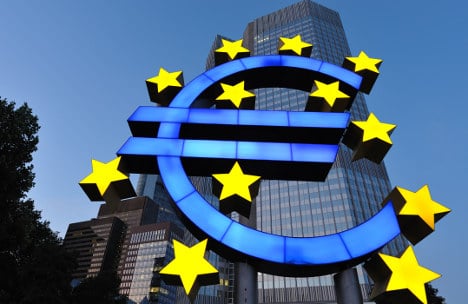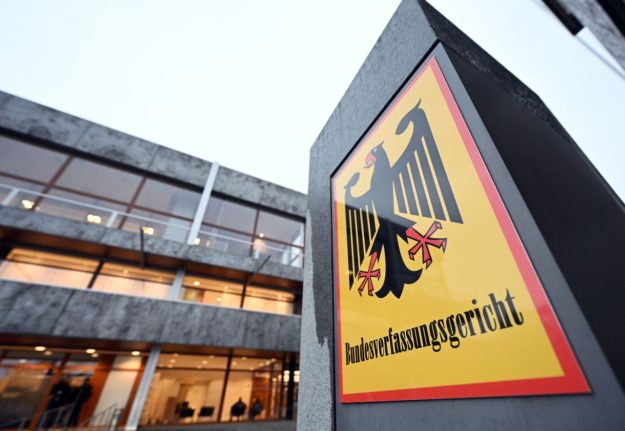“For the first time in the history of the EU, Germany is the unquestioned leader, and France is number two,” said Charles Grant, of the Centre for European Reform think tank, citing growing inequality ever since the financial crisis struck in 2008.
“Regular summits between Angela Merkel and Nicolas Sarkozy maintain the appearance of parity,” he said. But citing divergent performance whether in terms of public finances, exports or the spreads on bond markets, France has been “forced” to bow to German leadership on economic policy.
Germany strongly backs the ECB’s refusal so far to simply print enough money to buy up a large part of the mountain of debt that many eurozone countries have amassed.
But the ECB’s governing council, under intense pressure to do something, reduced eurozone borrowing costs for the second time in two months, cutting the rate for its main refinancing operations by a quarter of a percentage point to 1.00 percent on Thursday.
The euro immediately firmed to $1.3418 from its rate of $1.3380 before the rate decision, which came just hours before Chancellor Angela Merkel was due to meet other European leaders for a crucial summit in Brussels to save the debt-wracked eurozone.
Yet the bank also said it was expecting eurozone inflation was 2.7 percent in 2011, way above the ECB’s target of close to but just below 2.0 percent.
Merkel said on Thursday she was convinced that Europe would find the right solutions to the debt crisis.
“We will find good solutions. I’m convinced that we will find a solution to all these questions,” Merkel told a meeting of right-wing European parties in Marseille, admitting that talks would be “difficult” at the EU summit.
“I ask for understanding from those who do not have the euro. We must send a strong signal to the outside. Words alone are not enough, we need more ties, we need treaty changes,” she said.
The ECB’s interest rate cut came as no surprise to ECB watchers following a similar move last month as the debilitating debt crisis pushes the 17 eurozone countries to the brink of a new recession.
The high stakes for all EU institutions were highlighted by French President Nicolas Sarkozy who said in Paris that the risks of the EU exploding had never been so great. There would be no “second chance” if the summit failed to come up with a convincing solution, he said.
With the ECB rate cut widely priced in, the markets are waiting to see what other moves the bank – which many see as the only body able to contain the crisis – will take to shore up the debt-wracked euro.
The crucial question is whether the ECB will see commitments by Germany and France to tighten up eurozone budget discipline as sufficiently convincing to give it extra room for manoeuvre.
Under intense pressure to deal with the contagious debt crisis, European governments are moving towards radical changes on the road to fiscal, economic and political union.
In the future, governments that overspend and so increase the risk of market penalties for currency partner governments could be fined or see automatic “corrections” imposed by the European Commission.
A so-called “golden rule” obliging governments to fix balanced budgets and bring cumulative debts back within EU thresholds over time means the EU executive would acquire intrusive powers to rewrite national budgets.
The ECB would only increase its purchases of distressed government bonds, particularly Italian debt once it believed rules and policing mechanisms were in place to ensure that national governments tackle their fiscal deficits, said Chris Williamson, director and chief economist of Markit in London.
An announcement by international credit rating agency Standard & Poor’s putting the sovereign debt of the entire 27-nation on EU on downgrade watch has ramped up the pressure on Europe’s leaders to act.
“The entire world is watching. We must do everything” to save the euro, European Commission chief Jose Manuel Barroso told reporters in the French port city of Marseille.
“It is extremely important that we all together, all the EU, show that the euro is irreversible.”
S&P’s chief economist for Europe Jean-Michel Six insisted the agency was not working on the basis of an outlook that the single currency area would break up.
The ECB has played fire-fighter to a substantial extent throughout the long and debilitating crisis. But its officials insist that such a role is only temporary and it is ultimately up to governments to get their finances in order.
AFP/The Local/hc



 Please whitelist us to continue reading.
Please whitelist us to continue reading.
Member comments